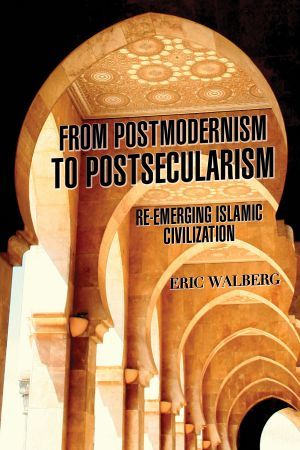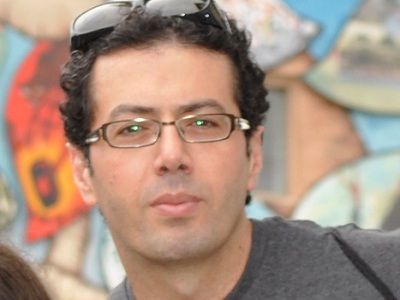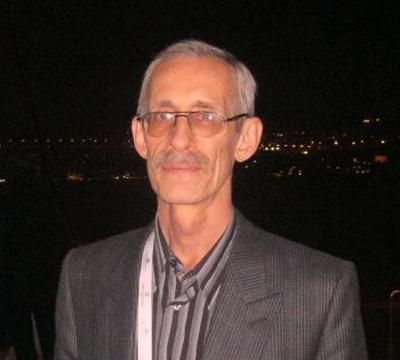
Publisher:
Bonnie King
CONTACT:
Newsroom@Salem-news.com
Advertising:
Adsales@Salem-news.com

~Truth~
~Justice~
~Peace~
TJP
Feb-05-2014 11:11

 TweetFollow @OregonNews
TweetFollow @OregonNews
Forging a Socialist-Islamist Alliance
Dr. William T. Hathaway Salem-News.comReview of Eric Walberg, From Postmodernism to Postsecularism: Re-emerging Islamic Civilization, Clarity Press, 2013
 |
(OLDENBURG, Germany) - Most western Middle East experts see Islam as a problem for the West -- a source of terrorism, religious fanaticism, unwanted immigrants -- and they see their job as helping to change the Middle East so it's no longer a problem for us. Eric Walberg, however, recognizes that this is another instance of the Big Lie.
The actual problem is the multifaceted aggression the West has been inflicting on the Middle East for decades and is determined to continue, no matter what the cost to them and us will be. His books and articles present the empirical evidence for this with scholarly precision and compassionate concern for the human damage done by our imperialism.
His latest book, From Postmodernism to Postsecularism: Re-emerging Islamic Civilization, is essential reading for anyone who wants to understand our ongoing war on the Muslim world -- from Libya to the Philippines, from growing beleaguered communities scattered across North America and Europe to South Africa and Australia -- from the perspective of those on the receiving end of America's violence today. It is a compelling representation of both the breathtaking sweep of fourteen centuries of Islamic civilization and the current state of the Muslim world.
 ramzybaroud.net |
In this sequel to his impressive Postmodern Imperialism (2011), Walberg attempts to bridge the East-West gap, "not through a reconciliatory discourse, but through a critical reading of history," according to the Palestinian-American writer Ramzy Baroud. Walberg looks at Islam as both religion and ideology, tracing it both via a methodological and an epistemological critique, and takes it seriously as a civilizational alternative to our present bankrupt secular imperialist order.
Our politicians and media have created an image of fiendish Muslim terrorists who "hate us for our freedom." But they really hate us for subjugating them, for overthrowing their governments, dominating their economies, and undermining their way of life. Since we started the aggression, the attacks won't end until we leave their countries.
Walberg asks the logical question: What can replace the neocolonial order so ruthlessly and cleverly put in place by the imperial powers in the Middle East over the past century? He explores many alternative answers ranging from "more of the same" to radical transformation.
 Eric Walberg |
What does Islam have to say about economics, politics, community, relations with Nature? Walberg charts a wealth of experience from the past fourteen centuries. Islam was the first world order to unite people on the basis of genuine equality, in a truly multicultural way. It never created empires like the Romans, the Christian heirs to the Romans, and most recently the British and Americans. Why?
Who are the great Muslim thinkers, and how do they differ from western thinkers of the time? How do the Prophet Muhammad's efforts to enact the revelations of the Quran in the seventh century compare with the teachings of Marx about how to create a world order without the depredations of capitalism?
These are some of the questions Walberg addresses, trying to bring together the two main opponents of imperialism today: Islamists and socialists. Our foe is the entire Western corporate juggernaut, of which Israel is only a part. To survive, we must set aside our religious and political differences and form a united front. Shias, Sunnis, secularists, and socialists need to work together to defeat our common enemy. As Samir Amin wrote, "To bring the militarist project of the United States to defeat has become the primary task, the major responsibility, for everyone." If we join in solidarity, we can win.
Otherwise the imperialists will continue to divide and rule.
But it is essential for socialists to take Islamists seriously, and vice versa, for both sides to understand the various currents in the common resistance to imperialism, and to forge alliances that will be lasting. So far, Islam has been at best tolerated by socialists, at worst, dismissed and opposed. At the same time, Islamists have been suspicious of the socialist reaction to imperialism, in a sense, wishing a pox on both houses.
Leftists are quick to condemn Islamists as strategically obtuse, or worse craven, willing to collaborate with imperialists (Saudis from the start, Muslim Brotherhood in the 1950s–60s against Nasserists), and to take CIA money (Afghanistan). There are those who denounce Hamas as an Israeli creation. Walberg looks closely at these arguments, based on his analysis of imperialist strategies during the past two centuries.
That Hamas possibly got support from Israeli sources is part of the age-old imperialist use of Islamists, but it has backfired. Hamas didn't sell out.
Fatah/PLO discredited themselves over decades and are now empty shells.
The role of Hamas in exposing PLO hypocrisy and "holding the fort" against
Israel has been proved decisively since it came to power in democratic elections in 2006.
From Postmodernism to Postsecularism: Re-emerging Islamic Civilization is a gripping and informative wake-up call to both sides of the anti-imperial equation, pulling together the many threads that can unite us, from Foucault's "political spirituality," to the Egyptian revolutionaries' solidarity with America's 99%, to the American Muslims' support for the peace and ecology movements.
William T. Hathaway is an adjunct professor of American studies at the University of Oldenburg in Germany. His latest book, RADICAL PEACE: People Refusing War, resents the experiences of peace activists who have moved beyond demonstrations and petitions into direct action, defying the government's laws and impeding its ability to kill. Chapters are posted on a page of the publisher's website at http://media.trineday.com/

William T. Hathaway is author of the novels A World of Hurt, CD-Ring,, Summer Snow and a nonfiction book, Radical Peace: People Refusing War. He also wrote the screenplay for Socrates, an educational film starring Ed Asner that was broadcast on PBS.
Hathaway began his writing career as a newspaper reporter in San Francisco, then joined the Special Forces to research a book about war. Based on his experiences on a combat team in Vietnam, A World of Hurt won a Rinehart Foundation Award for its portrayal of the psychological roots of war.
After the war Hathaway became a peace activist. In his latest book, Radical Peace, he wrote, "Since then my books and articles have centered on this theme, as do many of my nonwriting activities. It's become my beat, as they say in the newspaper business." A selection of his writing is available at http://www.peacewriter.org. You can drop William an email at this address: william.hathaway@ewetel.net
 |
 |
 |
Articles for February 4, 2014 | Articles for February 5, 2014 | Articles for February 6, 2014
Quick Links
DINING
Willamette UniversityGoudy Commons Cafe
Dine on the Queen
Willamette Queen Sternwheeler
MUST SEE SALEM
Oregon Capitol ToursCapitol History Gateway
Willamette River Ride
Willamette Queen Sternwheeler
Historic Home Tours:
Deepwood Museum
The Bush House
Gaiety Hollow Garden
AUCTIONS - APPRAISALS
Auction Masters & AppraisalsCONSTRUCTION SERVICES
Roofing and ContractingSheridan, Ore.
ONLINE SHOPPING
Special Occasion DressesAdvertise with Salem-News
Contact:AdSales@Salem-News.com





Terms of Service | Privacy Policy
All comments and messages are approved by people and self promotional links or unacceptable comments are denied.
[Return to Top]
©2026 Salem-News.com. All opinions expressed in this article are those of the author and do not necessarily reflect those of Salem-News.com.